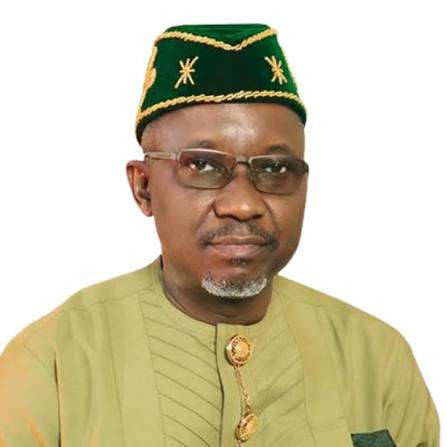Business
Nigeria to power 4,000km high-speed rail with natural gas, says minister

Minister of State for Petroleum Resources (Gas), Dr. Ekperikpe Ekpo, has said Nigeria’s vast natural gas reserves will play a central role in powering the country’s planned 4,000-kilometre, 350 km/h high-speed rail network, a project expected to transform connectivity and drive industrial growth across Africa.
Speaking on Tuesday at the International Railway Conference 2025 in Abuja, organised by the Federal Ministry of Transportation in collaboration with De-Sadel Nigeria Limited, Ekpo described the project as a “game-changer” for trade, investment, and industrialisation.
“For decades, our nation relied on crude oil as the primary driver of our economy, while gas was underutilised,” Ekpo said. “Under the visionary leadership of President Bola Ahmed Tinubu, this narrative is changing. The ‘Decade of Gas Initiative’ has repositioned gas as the centrepiece of our national energy strategy, transforming it from a by-product of oil to the foundation of Nigeria’s economic and industrial future.”
Nigeria has proven gas reserves of 210 trillion cubic feet, with an estimated potential of up to 600 trillion cubic feet. According to the minister, these reserves provide a clean, affordable, and sustainable energy source to run the capital-intensive rail network and ensure uninterrupted electricity for railway stations, urban centres, and industrial hubs along the route.
Ekpo also noted that natural gas can be converted into transport fuels such as Gas-to-Liquids (GTL) and Liquefied Natural Gas (LNG), enabling modern rail systems to cut emissions while maintaining cost efficiency.
“The high-speed rail will unlock new economic corridors where gas-based industries, fertiliser plants, petrochemicals, methanol production, and CNG hubs, can flourish, transforming rail-connected cities into vibrant growth centres,” he said.
He added that with the African Continental Free Trade Area (AfCFTA) in full swing, gas-powered industries linked by high-speed rail will boost Nigeria’s position as the industrial and energy hub of West and Central Africa.


